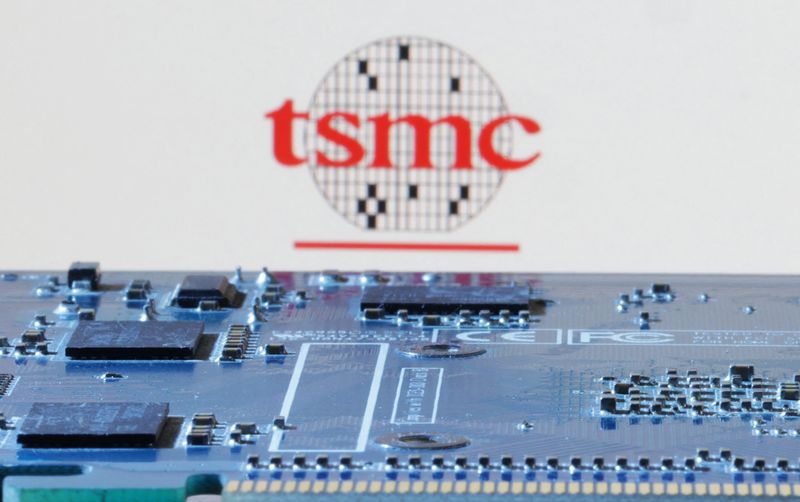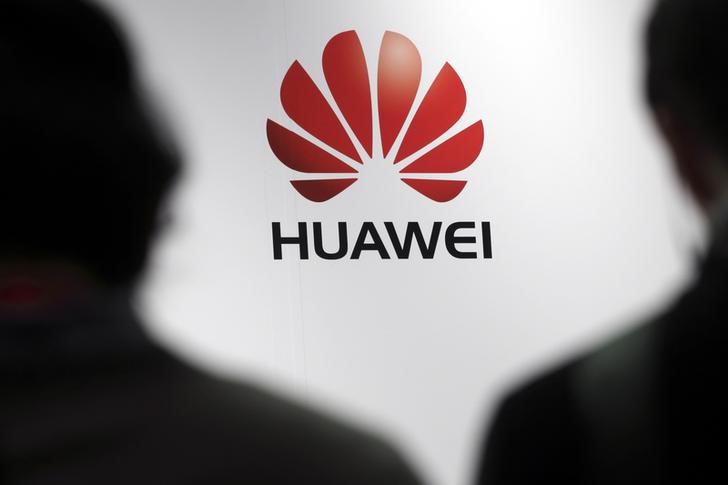By Alexandra Alper and Karen Freifeld
(Reuters) – The Biden administration plans to blacklist a Chinese company whose TSMC-made chip was illegally built into a Huawei artificial intelligence processor, a person familiar with the matter said.
Chinese company Sophgo attracted attention after a chip found on Huawei’s Ascend 910B multi-chip system matched a chip it ordered from Taiwan Semiconductor Manufacturing Company.
Sophgo is the latest Chinese company to be punished by the US for helping Huawei. This month, the Commerce Department added other companies considered part of Huawei’s shadow network to the U.S. Commerce Department’s restricted trade list.
Sophgo, a subsidiary of Bitcoin mining equipment supplier Bitmain, is currently being placed on the list known as the Entity List, the source said.
Companies are added to the list for activities contrary to U.S. national security and foreign policy interests. Exporters will then not be allowed to ship goods and technology to them without a permit, which will likely be denied.
China’s Huawei, a telecommunications equipment manufacturer and technology conglomerate, was included on the list in 2019. As of 2020, it is an offense to ship even foreign-made chips to the company without a permit.
A spokesperson for the U.S. Department of Commerce declined to comment.
Sophgo did not immediately respond to requests for comment. In an October statement, the company said it “has never had any direct or indirect business relationship with Huawei.”
Sophgo is a supplier to local governments and state-owned enterprises such as China Telecom (NYSE:), according to tenders reviewed by Reuters.
According to the tender assessment, Sophgo and Bitmain’s AI chips have been purchased over the past two years by Chinese state universities building AI tools and police agencies looking to improve their surveillance capabilities.
RESEARCH COMPANY DISCOVERED CHIP
Technical research firm TechInsights took apart the Huawei 910B, discovered the TSMC chip and informed the chipmaker, which notified the U.S. Department of Commerce, Reuters reported in October. After determining that the chip matched Sophgo’s design, TSMC suspended shipments to the company, sources said.
TSMC, the world’s largest contract chipmaker, said in October that it has not supplied Huawei since 2020.
A Taiwanese official said that month that TSMC had alerted Taiwanese and US authorities and begun a detailed investigation.
A TSMC spokesperson declined comment Friday on what the investigation had revealed.
As of November 11, the US ordered TSMC to halt shipments to China of advanced chips of seven nanometers or more that can be used in AI applications, as reported exclusively by Reuters.
Huawei said in October it had not produced chips through TSMC since the US imposed new export rules on the company in 2020. It did not immediately respond to a request for comment on Friday.
Once hampered by US restrictions, Huawei has since diversified and found itself once again at the center of China’s AI chip ambitions.
The company’s Ascend 910B, released in 2022, is said to be the most advanced AI chip available from a Chinese company. Huawei plans to start mass production of its latest chip, the Ascend 910C, aimed at competing with US AI chipmaker Nvidia (NASDAQ:) in early 2025, as Reuters reported last month.
Sophgo was co-founded by Micree Zhan, who also co-founded Bitmain, according to a company registration database.
Zhan still indirectly owns 23% of Xiamen Sophgo Technologies Ltd, and five of its subsidiaries through an investment vehicle, Beihaishan Beside Investment Partnership, which he fully owns, according to Wirescreen, a business intelligence platform and company data reviewed by Reuters.
Sophgo communicated with the US Federal Communications Commission in 2023 via a Bitmain email address.

Bitmain said on social media on October 28 that it is “not involved in or otherwise connected to the supply chain investigation.”
Bitmain’s website states that it is the world’s largest manufacturer of digital currency mining servers through its Antminer brand, and that it has customers in more than 100 countries.


